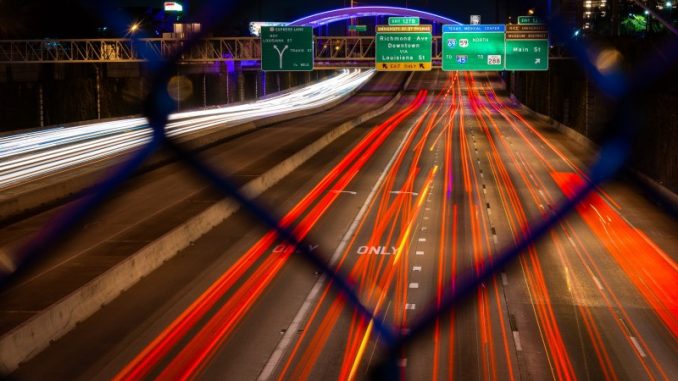
Monday night, I was out and about with a longtime friend who is moving back to Houston as he has obtained a job here. We went and got some furniture for a rental house he’ll be moving into, as well as some furnishings he’s brought from his previous home. While we were driving around Houston, we overheard a radio program put on by Houston Public Media featuring Bill Kelly, Mayor Sylvester Turner’s director of governmental relations. Mr. Kelly gave an interview in which he stated that the next mayor will face a funding gap that has been plugged in recent years with federal money. A link to the program can be read here.
I’ll write a longer analysis about the issue within a week or so, but for now I’ll make a proposal. One big way for the City of Houston to bring in more tax money would be to push to strip Harris County METRO of 1/4th of a cent of the agency’s 1 cent sales tax revenues and instead transfer the money to the city’s coffers. That would leave the transit agency with a 3/4-cent per dollar sales tax to operate on, 1/4-cent of which would continue to be split amongst the member cities of METRO for road repairs, street maintenance, signage, and so forth. It would leave the agency on a 1/2-cent budget for operations. Of the additional 1/4-cent to be stripped away (the current 1 cent sales tax gives METRO roughly $1 billion per year in revenues), the City of Houston’s share of the $250 million taken from METRO would likely amount to some $150 million per year. This would effectively mean that one-half of the 1 cent sales tax that METRO collects would go to road maintenance and repairs. Such a move would not close the entire alleged funding gap that the city faces, but it would make a big dent in it. If the full $150 or so million per year collected would be dedicated to road repairs and maintenance, that would go some distance towards helping speed up repair programs, which according to a recent UH Hobby poll is one of the top concerns of City of Houston voters.
I’ll try to go into a further analysis soon, but here is my overall thinking on the subject:
- Harris County METRO has been in existence since 1979. After 20+ years of arguing and fighting over the role of rail and guide ways, the pro-rail / transit crowd won political victory, and light rail was built. In the nearly 20 years since the first light rail line was completed and entered service, several additional rail lines (and the Post Oak BRT guideway) have been built. Yet overall ridership has fallen substantially while the population has grown, and bus service has been cut.
- In every single instance of a rail line or bus rapid transit guideway proposal, actual costs went several times over early estimated costs. Also, ridership projections have wildly exceeded actual transit patronage – as in many, many times over. Bill King wrote about this recently, but readers can also look at some of my previous writings on the subject for more detail.
- In the spirit of being generous, one could have made a good faith argument 20 years ago that building rail would result in fewer vehicles on the roads and less traffic congestion. However, the results over the past 20 years show that there is now no reason to think at this point that building more rail lines or guideways anywhere in the Houston area will actually result in greater transit patronage or reduced traffic congestion. However, it will result in continued cost overruns, failed ridership projections, ruined businesses, clogged streets if motor vehicle lanes are taken away (as is proposed along Richmond Avenue), along with zero added productivity or value. In a later post, I’ll go into why all this happens.
- The whole world went through the COVID-19 event. One thing that happened in America was that transit agencies lost substantial transit patronage, partly because people got scared off from using transit, and partly because affluent suburban commuters started working from home by the millions. METRO’s own ridership reports show that the agency has lost some 60 percent of its suburban Park and Ride commuters since 2019 because of the widespread work-from-home phenomenon.
- The recent University of Houston Hobby School poll showed that many Houstonians think that the conditions of streets and roads in the City have gotten bad enough to where they are now a quality of life issue.
Hence, my argument here is that METRO is overfunded and will never be able to make good on any hopes or promises that spending more money on transit will result in greater transit patronage. Also, I’ll take Bill Kelly at his word that the City of Houston is underfunded. Ergo, if City of Houston mayoral hopefuls really wanted to do something bold, they would put an end to the 2019 METRO Next boondoggle, and instead start making moves to steer additional percentages of METRO’s sales tax monies into repaving the City of Houston’s road network. It’s conceivable that this could be done with a pro-road METRO board put in place by the next mayor, or it may need action on the part of the Texas Legislature. Either way, doing so would be a far better use of taxpayer monies, and it would go a long, long way to making Houston a far better city to live in.
